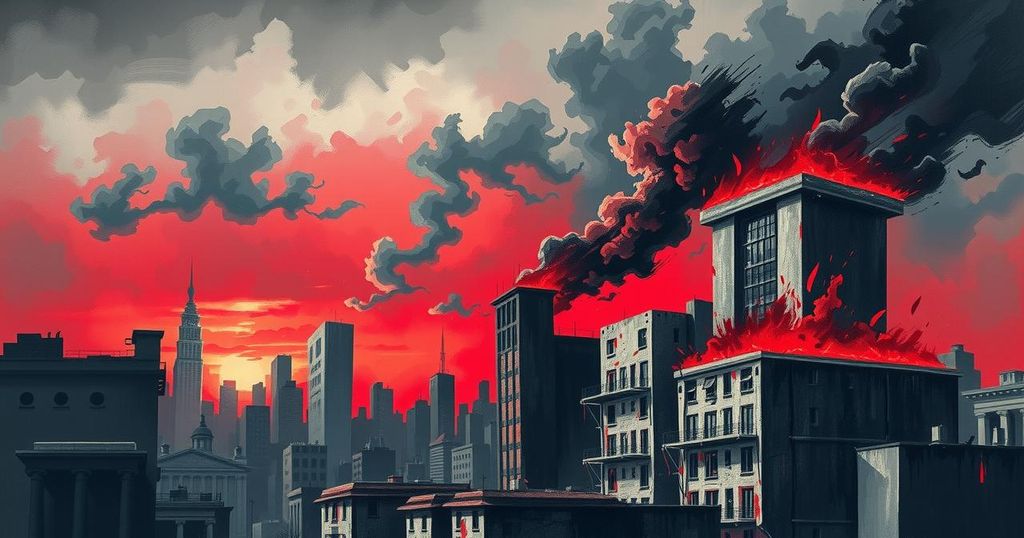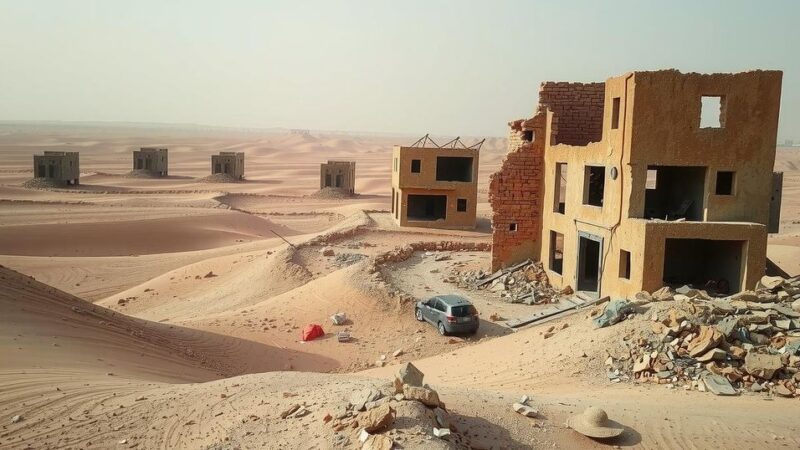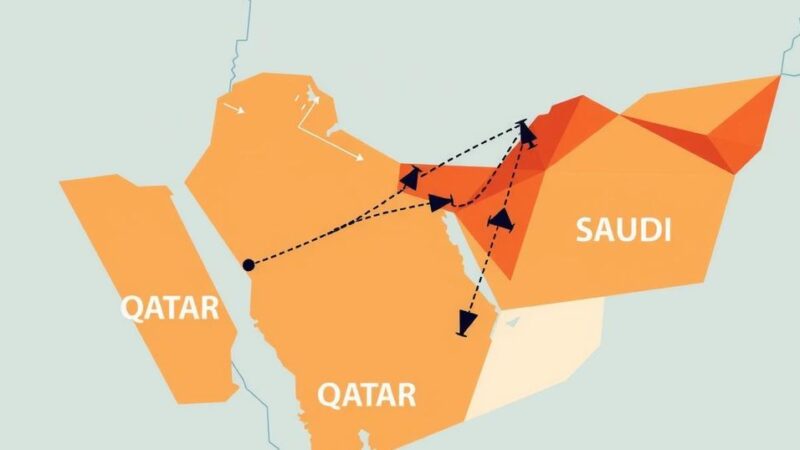Israel has warned of escalated attacks across Lebanon after recent rocket fire led to airstrikes in Beirut. This incident has prompted criticism from Lebanese and French leaders, while casualties from the retaliatory strikes have been reported. Calls for an investigation and restraint have emerged amidst fears of resuming conflict with Hezbollah.
On Friday, Israel declared that it would enforce a ceasefire across Lebanon following rocket fire that prompted an airstrike in Beirut, marking the first such assault during a four-month truce with Hezbollah. Lebanese Prime Minister Nawaf Salam condemned this as a “dangerous escalation,” while French President Emmanuel Macron characterized it as an “unacceptable” violation of the ceasefire.
Although the Lebanese health ministry reported no casualties from the Beirut attack, Israeli strikes in southern Lebanon resulted in five fatalities. This assault was the second instance of rockets being fired from Lebanon since the ceasefire began in November, with Hezbollah denying involvement on both occasions.
Prime Minister Benjamin Netanyahu stated, “The equation has changed,” emphasizing that Israel would enforce the ceasefire strictly and retaliate against any threats. Defense Minister Israel Katz warned, “there will be no quiet in Beirut either” if there is unrest in northern Israel.
Following the warning, heavy traffic ensued as residents sought to flee the area in response to the airstrike, which targeted a site identified as storing UAVs for Hezbollah in the Dahieh region. This area had previously experienced extensive bombing during the conflict with Hezbollah last year.
Lebanese President Joseph Aoun indicated that an investigation was necessary but suggested that evidence points away from Hezbollah’s responsibility for the rocket launch. An AFP photographer described the aftermath of the airstrike, noting that it completely destroyed the intended building, resulting in black smoke rising into the sky.
The Israeli military reported intercepting one projectile directed at Israel; meanwhile, they also launched retaliatory strikes on Hezbollah targets in southern Lebanon. Hezbollah maintained its commitment to the ceasefire, denying any connection to the rocket launches.
Under the ceasefire terms, Israel was scheduled to withdraw its troops from Lebanon by February 18, following delays. The agreement also requires Hezbollah to relocate its forces and dismantle military infrastructure in the southern region, with the Lebanese army stepping in as Israeli forces withdrew.
Prime Minister Salam urged military leadership to investigate the unauthorized rocket fire, engaging foreign officials, including the U.S. deputy special envoy for the Middle East. The U.S. leads a committee, with France, to oversee the truce.
During a press conference, Macron announced his intention to discuss the situation with both U.S. President Donald Trump and Prime Minister Netanyahu, asserting, “There is no activity that justifies such strikes.” Reports from Lebanon’s National News Agency confirmed additional Israeli bombardments in southern regions, resulting in more casualties, which raised alarm from the UN’s special envoy for Lebanon.
In summary, Israel has escalated its military response in Lebanon following rocket fire, prompting airstrikes that have drawn international condemnation. The ongoing tension raises concerns about the fragile ceasefire with Hezbollah and the potential for wider conflict in the region. Both Lebanese leadership and international figures are now calling for restraint and a thorough investigation into the recent events, emphasizing the need to avoid further escalation.
Original Source: www.al-monitor.com






